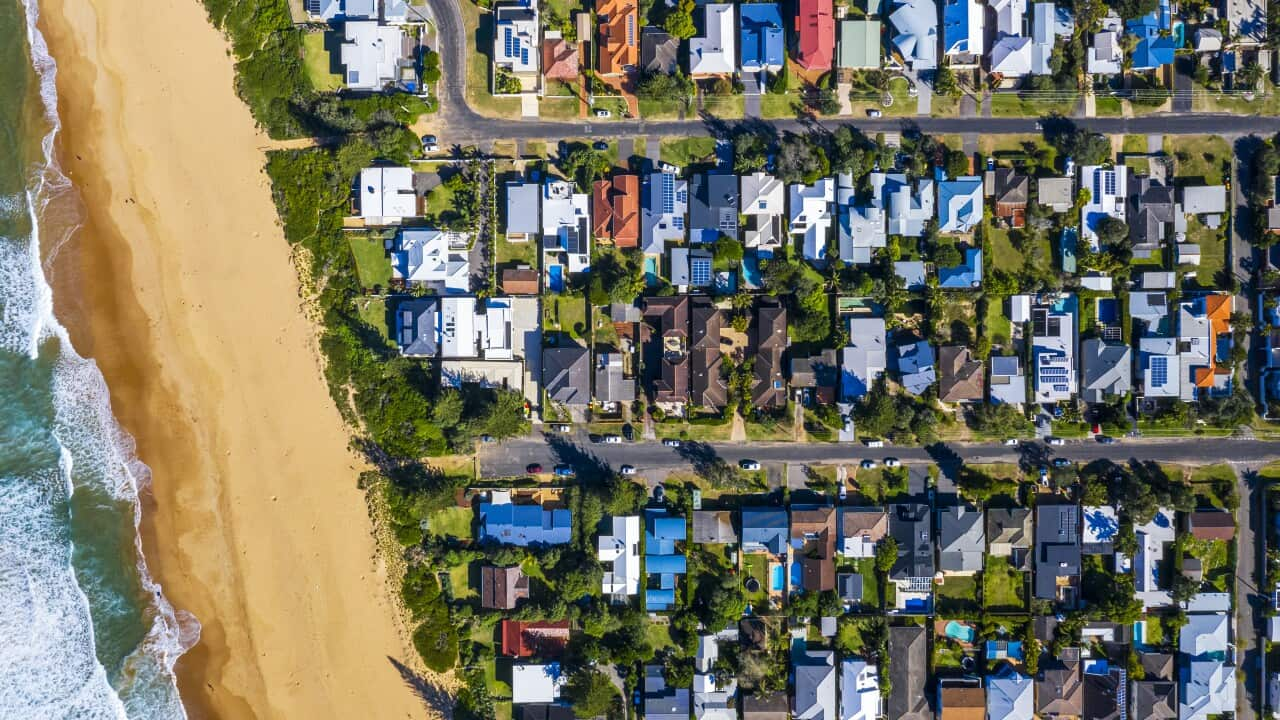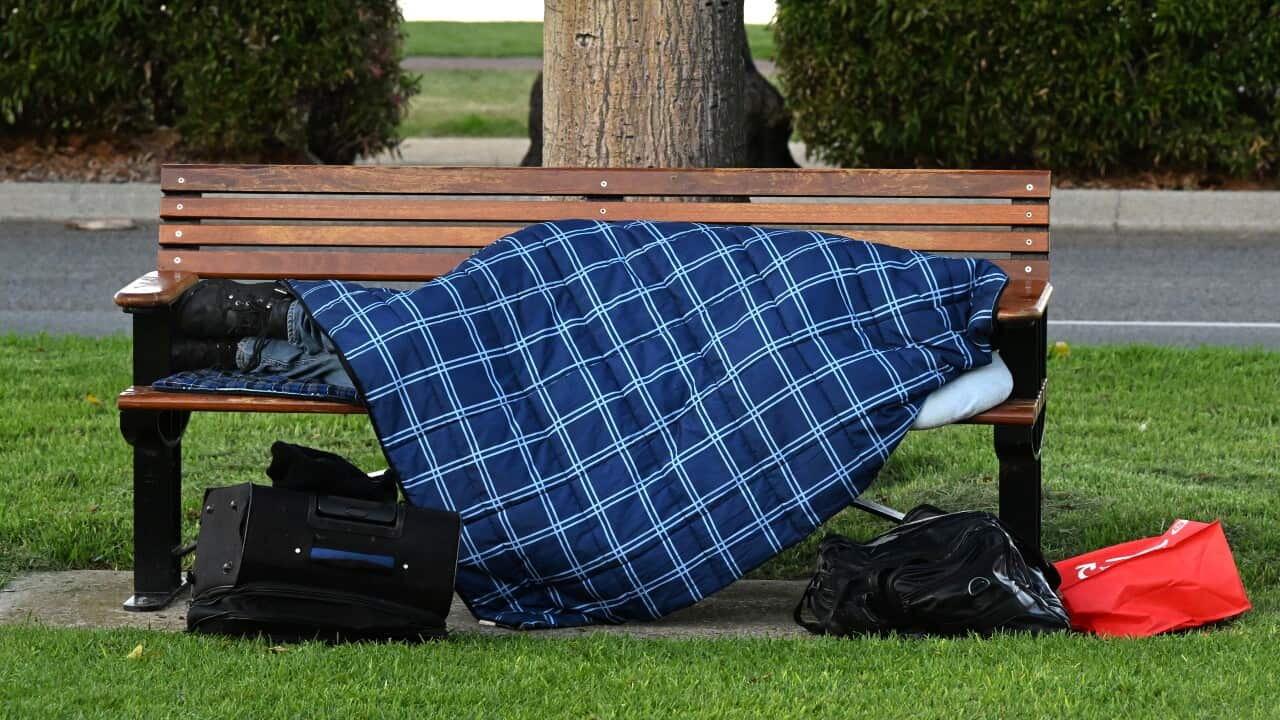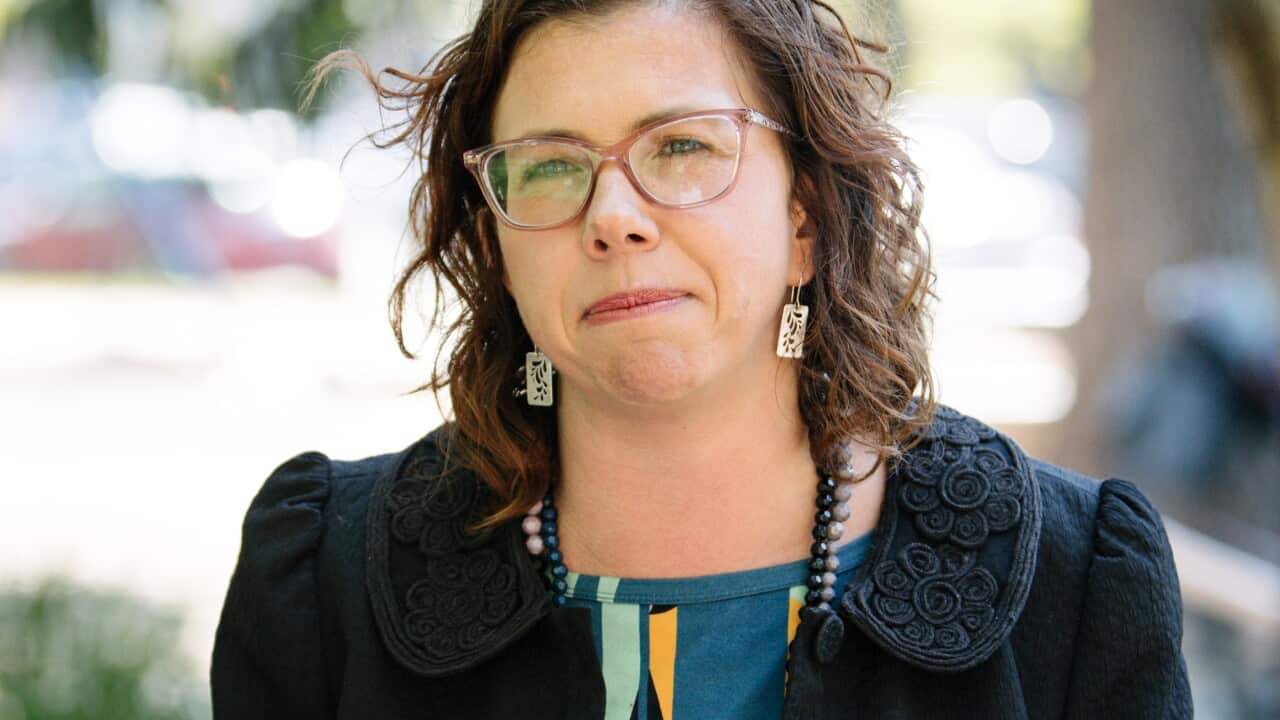Key Points
- The rental crisis has been caused by a ‘perfect storm’ of a pandemic, inflation and natural disasters.
- Homelessness Services Australia chairman Jenny Smith says the situation is dire.
Time is running out for Arok Deng.
The 26-year-old has just given birth, weeks earlier than expected, and is desperate to find a home of her own as she prepares her new life with a newborn.
The Victorian is staying at her mother's place, but she says there's no room for her with seven other adults living there.
She just wants to raise her family in a place of her own with her partner, who is yet to arrive from Kenya.
'Cycle of disappointment'
“I will fall into that category (of homeless) soon,” she told SBS News, speaking from her hospital bed.
Ms Deng was heavily pregnant when she went inspecting dozens of properties in Melbourne’s Werribee region. She was rejected 35 times, because of her lack of rental history.
She had just one successful bid, but the property was out of her price range.
"It just seemed like it's a cycle of like disappointment, going through (that) every single day."
She says some of the properties she had put in applications for three months ago are still on the market.
"I think it's just unfair," the new mum said.

Landlords are expected to increase rents as mortgage rates are also upped. Source: AAP / JAMES ROSS
What has caused the problems in Australia's rental sector?
Australia’s rental crisis has been caused by a ‘perfect storm’ of a pandemic, inflation and natural disasters.
The situation is only expected to get worse as landlords jack up rents in response to higher interest rates, which are expected to peak later this year.
Homelessness services are overwhelmed. This year some have seen a three-fold increase in after-hours calls for help, and more calls are having to go unanswered.
Homelessness Services Australia chairman Jenny Smith says the situation is dire.
“With the floods that we've seen, the fires a few years before that, I think we're seeing more and more people dislocated, and we are seeing people who are working but have not got enough hours, are in insecure work frequently, just not able to compete in the private rental market,” she told SBS News.
“Increasingly, our services are seeing people who do have jobs, people who are having an income from work, but often it's not sufficient income to be able to keep body and soul together.”
Ms Smith says the situation has been decades in the making, a result of a lack of action on not just building new social housing projects but increased income support payments and comprehensive prevention services.
“We've seen homelessness increase three to four per cent, every year, year on year, because we haven't had any of the measures in place that are needed to end it.”
What is needed to end homelessness in Australia?
As part of Homelessness Week, Homelessness Australia has released a plan it says will end homelessness within a decade.
That could be achieved if 25,000 social housing properties were built every year, and a housing guarantee was provided for women and children fleeing family violence — who make up nearly two-thirds of people experiencing homelessness.
The organisation also wants to see stability of homes provided for the chronically homeless, young people who can’t live at home given the support they need to succeed, an increase to the JobSeeker rate to at least $70 a day [from $46 a day] and Commonwealth Rental Assistance by 50 per cent.
“We have put forward some fundamental ideas that need to underpin any plan to end homelessness in Australia,” Ms Smith said.
Last month, federal minister for housing Julie Collins, said the Albanese government's housing reform agenda included a $10 billion Housing Australia Future Fund that will build 30,000 social and affordable housing properties in its first five years.
She said: “This meeting is the first step to designing and delivering the Albanese Government’s housing reform agenda to address the significant challenges across the housing spectrum, from homelessness to housing affordability.
“Housing is central to the wellbeing of all Australians, and all levels of government are committed to ensuring everyone can more easily access safe, affordable housing."
For Arok, the prospect of having to keep looking for a rental with a newborn is daunting.
"I don't know what I'm gonna do, like, leave the baby with mum? And then again, the problem is, is it going to make an a difference now I have a baby, or they're still going to be the same problems that I had, while I was pregnant, trying to search for a house, and I wasn't being accepted?
"I need someone to give me a chance."












